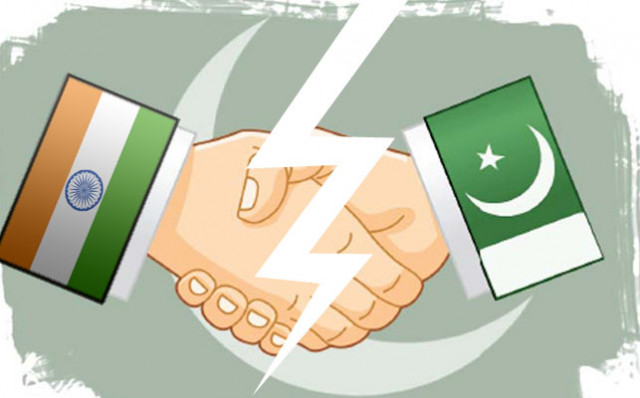India outraged over Pakistan's resolution for Afzal Guru
Indian minister calls resolutions an interference in India's internal matters.

Members of the Indian Parliament expressed anger and accused that Pakistan was attempting to interfere in India's internal affairs. ILLUSTRATION: JAMAL KHURSHID
Guru was hanged last month on the charge of being part of the conspiracy to bomb Indian Parliament.
Members of the Indian Parliament expressed anger and accused that Pakistan was attempting to interfere in India's internal affairs. The two houses of Parliament passed unanimous resolutions and MPs spoke harshly about Pakistan's resolution passed on Thursday.
“The House rejects interference in the internal affairs of India and calls upon the National Assembly of Pakistan to desist from such acts of support for extremist and terrorist elements”, the resolution passed by the Indian Parliament stated.
It further stated, “The House reiterates that the entire State of Jammu and Kashmir including the territory under illegal occupation of Pakistan is and shall always be an integral part of India. Any attempt from any quarter to interfere in the internal affairs of India will be met resolutely and with complete unity of our nation.”
The leader of the Upper House Arun Jaitley , speaking on India-Pakistan relations, said, " Prime Minister, Dr Manmohan Singh, has in the past been very magnanimous to say that he is willing to walk an extra mile. After a series of these provocations, we would like to urge him that forget a mile, he should now forget walking even an extra yard.”
Expressing his verdict on the matter he further said that Pakistan was showing sympathy for terrorists attacking India so structured dialogue between the two countries should end.
“Pakistan will now have to walk extra two miles rather than our Prime Minister wanting to walk an extra mile. If we want to normalise relations, with these kinds of resolutions, normalisation of relations will not be possible," he concluded.
India’s backlash, on Pakistan’s resolution for Afzal Guru, included a counter resolution and cancelling the hockey match series between India and Pakistan.
The Hockey India cancelled the tour when they reportedly received a letter, from the Minister of External Affairs, asking them to cancel the series. Everything had been prepared for the series, including clearances from the Sports and Interior Ministries.
Sporting ties between the two countries snapped after the 2008 Mumbai attacks. While cricket remained off-limits for the Pakistanis, hockey wasn't.
Visa cancellation cannot be ruled out, though a conference on trade ties between India and Pakistan organised by think tank Indian Council for Research on International Economic Relations (ICRIER), stayed on course.



















COMMENTS
Comments are moderated and generally will be posted if they are on-topic and not abusive.
For more information, please see our Comments FAQ